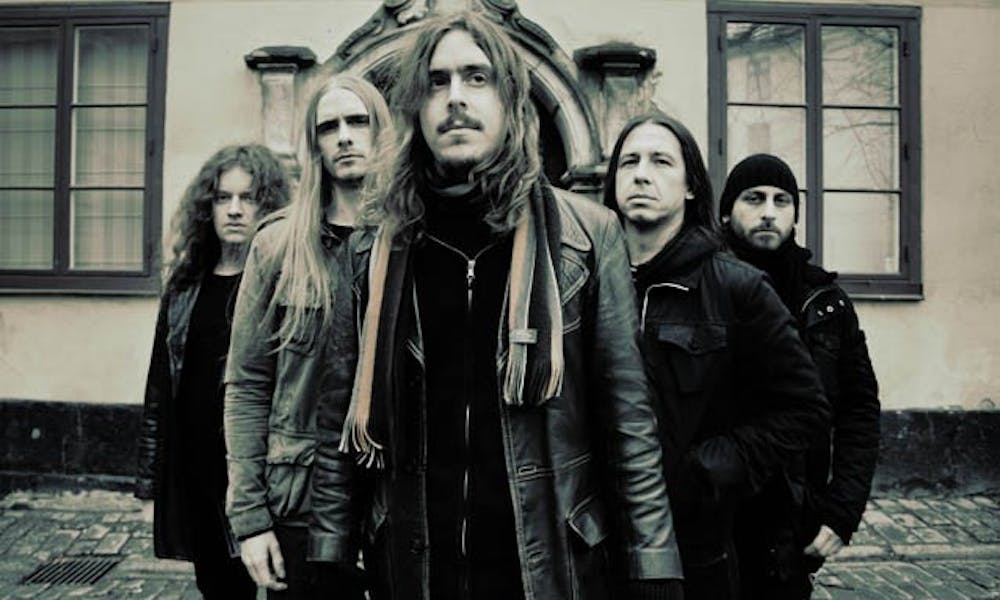16 years ago, Opeth exploded onto the death metal scene with a debut album, Orchid, that redefined the limits of the genre, blending technical jazz influences and haunting acoustic arrangements between blasting double kick and Mikael Akerfeldt’s gravelly vocals. Now, ten full-length albums after their rough and revolutionary inception in Stockholm, the Swedish five-piece returns with Heritage, their most recent release, to the styles and influences that preceded and informed their music, and the progressive death metal they helped cultivate. Casting their sights backward and easing off the thunderous distortion, the Opeth we hear on Heritage are decidedly more thoughtful, sophisticated and technically proficient than they’ve ever been.
Gone are the relentless double-kick drumbeats, the searing walls of guitar-driven power and Akerfeldt’s gut-wrenching howls and growls–this is progressive metal stripped to its bones. With the distortion turned down to the level of an Eric Clapton solo and the roaring death vocals replaced with a soft, mournful croon, the sheer skill of the musicians and the erudite, introspective character of Akerfeldt’s lyrics take center stage. Few other bands in genre could successfully support such a radical departure from the hot air and frantic energy that define the genre.
Produced by Steven Wilson, frontman of the influential prog-rock group Porcupine Tree, Heritage is a beautiful deconstruction of the precedents of modern metal. Flitting between poignant acoustic passages, driving progressive compositions and gigantic guitar solos, Opeth create soundscapes of Deep Purple- and Pink Floyd-esque rock organs, Claptonian guitar licks, jazzy drums and flutes. Enough sonic dissonance and ponderous guitar build-ups remain to satisfy purists, but Opeth have the chops and courage to depart from their roots to expand the scope of their oeuvre. At times, it even seems that these riffs and arrangements were what Akerfeldt always wanted to write. “Famine,” one of the album’s two 8-minute tracks, ranges from breathy flute to slow piano dirges to prog-rock intricacy, highlighted by the lonesome croon of Akerfeldt’s cleaner voice. It’s a track representative of the album’s epic form that captures Opeth’s artistic soul in an unexpectedly accessible way.
Get The Chronicle straight to your inbox
Signup for our weekly newsletter. Cancel at any time.

